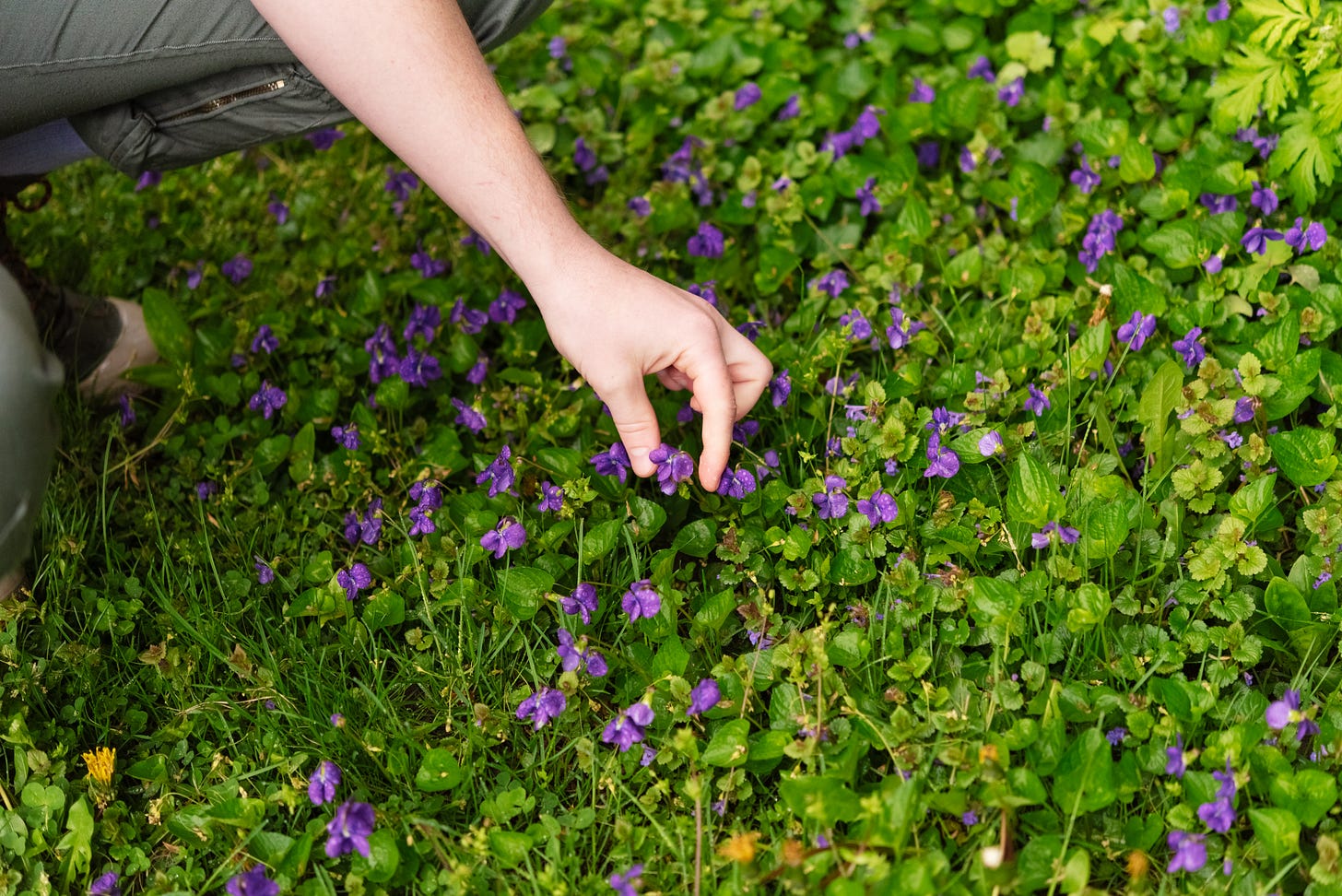When I set out to create The Wild Grocery, I wanted to create culinary content that teaches everyone about wild flavors - not just foragers. I’m providing recipes you can dive into whether you forage yourself, purchase from a wild foods business, or trade with a local harvester.
That being said - a get a lot of questions about learning to forage. Below is a short list of books, podcasts, and social accounts I think are great to know on your foraging journey. In general, you should seek to learn from a diverse set of teachers and a wide variety of media sources. Find local organizations and educators, and explore your local library for quality regional identification texts. If you’re just getting started, check out Foraging 101 before diving in here.
Regional Foraging Series
Book Series from Timber Press
When beginning foragers ask for harvest and identification text recommendations, I usually advise that they start with one of these books. None of them are comprehensive, but they’re designed to be a really accessible introduction to just a few common, easy-to-identify species. You might recognize the series from the shelves of Barnes & Nobles, but don’t be tricked into thinking they’re low quality just because they’re short and available in big-box stores. These books are written by reputable foragers and community leaders, many of which I have personal relationships with.
Find your Regional Book on the Publisher’s Website
Botany in a Day
Book by Thomas J. Elpel
If you want to get serious about plant identification, this book teaches a simple technique to understanding plant families. Instead of trying to learn hundreds of individual species, you’ll master the traits that are specific to particular taxonomic families.
Sam Thayer's Field Guide to Edible Wild Plants of Eastern and Central North America
Book by Sam Thayer
This is the definitive foraging text for Eastern and Central North America, and will remain so for the foreseeable future. In my opinion, it’s written for intermediate foragers - but it’s still user-friendly enough that beginners will get immense value from the writing. I recommend all of Sam’s books, but this one is his most recent and most comprehensive.
Learn Your Land
Youtube Channel
The creator of Learn Your Land, Adam Haritan, creates thorough, insightful videos about connecting with the natural world. I once interviewed Adam for a podcast (that unfortunately never aired) in which he explained that Learn Your Land was not explicitly designed to be a foraging resource. Nonetheless, the content of this channel offers incredible educational resources for identifying edible species and understanding how things grow.
iNaturalist
Nature App
iNaturalist helps you identify the plants and animals around you while generating data for science and conservation. The world of plant and mushroom identification apps can be a little tricky - this is the one that most professional foragers use and recommend.
Wild Edible World Podcast
Podcast
Michael & Steve deep dive on common wild edibles and interview a wide diversity of foraging professionals in this personal favorite pod!
Listen on Spotify
Listen on Apple Podcasts
Publicly Challenged
Podcast
Luke Oswold is on quest to become a better hunter, angler, and forager by interviewing a variety of expert guests!
Listen on Spotify
Listen on Apple Podcasts
Eat the Weeds
Blog
This is a reputable blog that, anecdotally, seems to cover species that most blogs and online resources miss.
Forager Chef
Blog
Alan Bergo is a chef and culinary visionary in the wild foods space. His blog is largely focused on the cooking and preparation, but you’ll also find narrative harvest information that weaves in nuance you won’t find in most identification texts.
Social Accounts
There are unlimited friends and foragers I could list who post valuable educational content on social media. The select accounts below tend to consistently post content that teaches their audience how to harvest and identify edible species. If you’re looking for additional accounts that cover cooking, foraging culture, herbalism, wild fermentation, or Indigenous food systems, check my “following” list on instagram or send me a DM with what you’re looking for @jbdouglas.food.
Alexis Nelson (Black Forager)
Gabrielle Cerberville (Chaotic Forager)
Gordon Walker (Fascinated by Fungi)
Michael Baker (Edible Illinois)
Orion Aon (Forage Colorado)
Tim Clemens (MN Forager)
This is short list based on what I have found consistently valuable over many years of foraging. If you think I’m missing key resources, let me know in the comments below!



